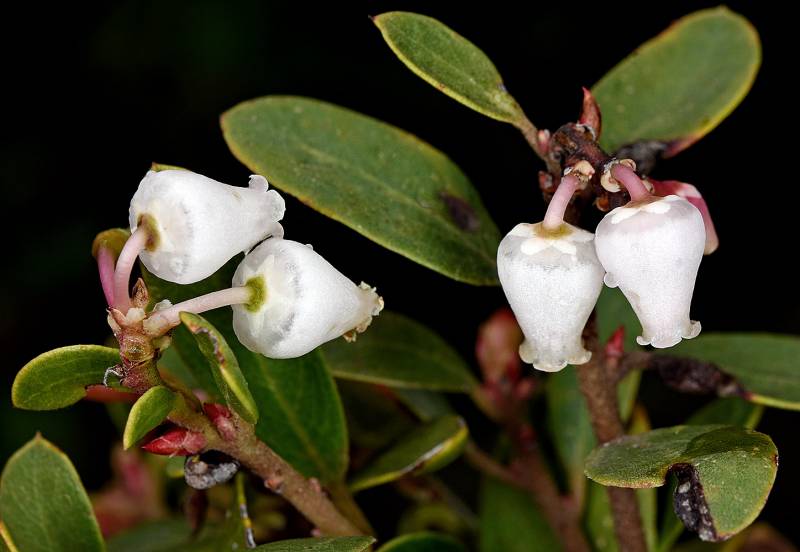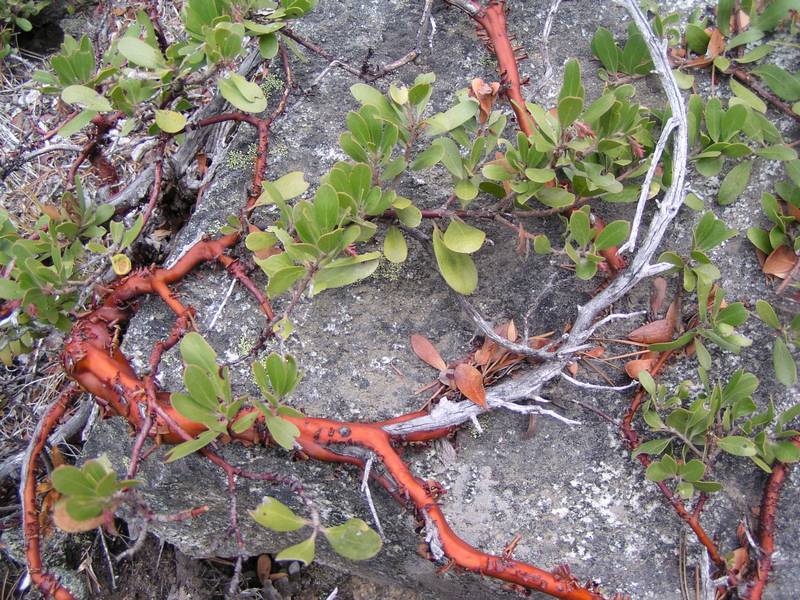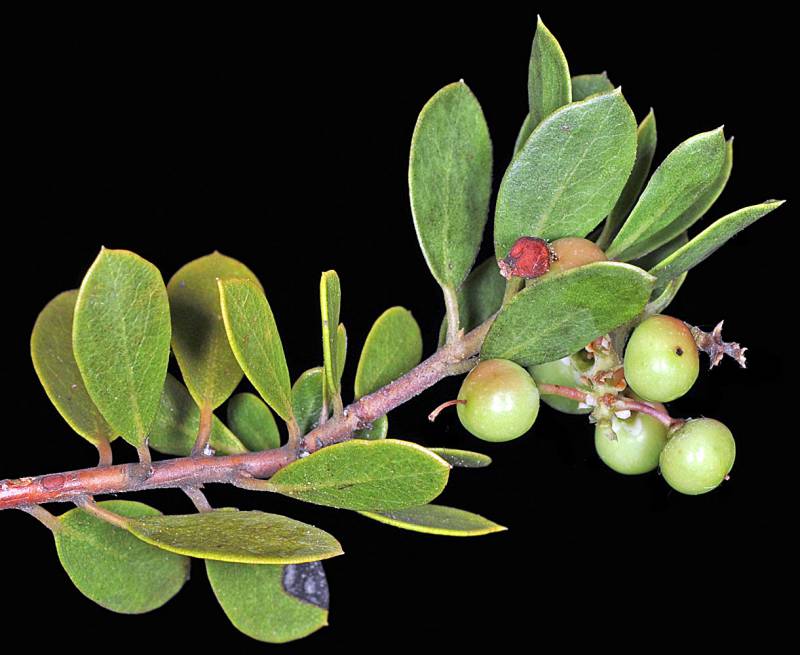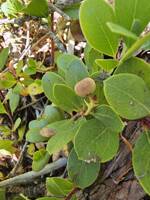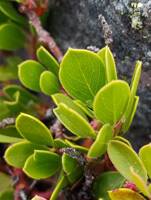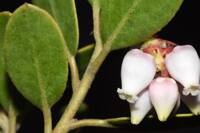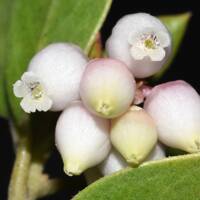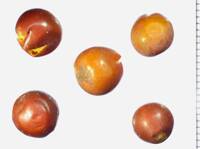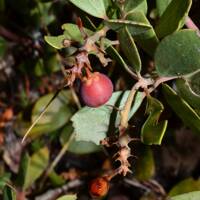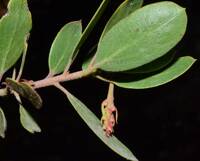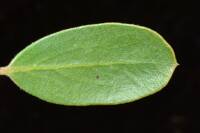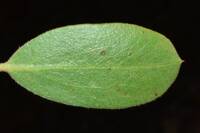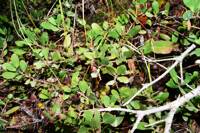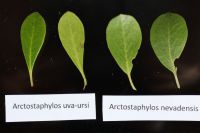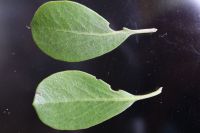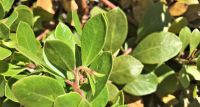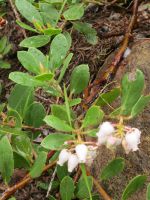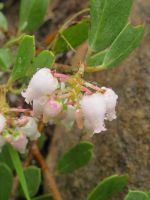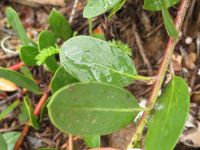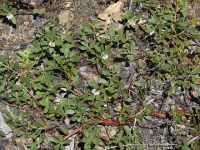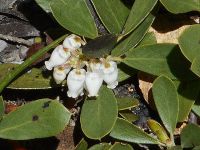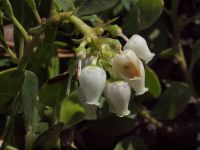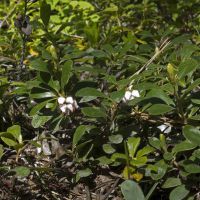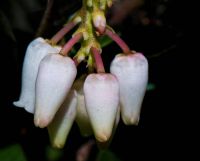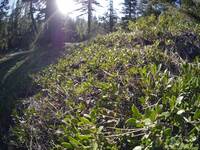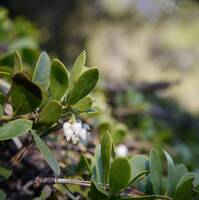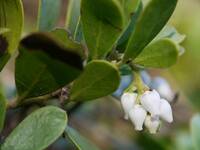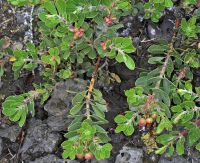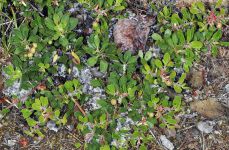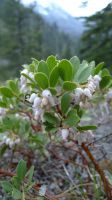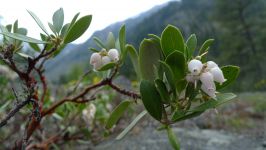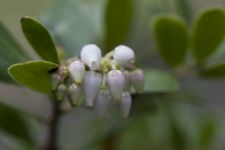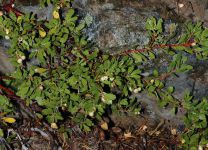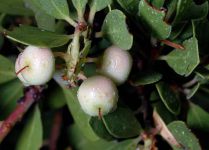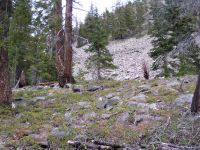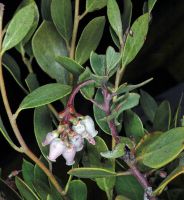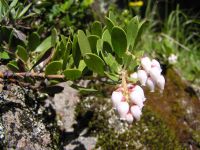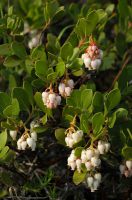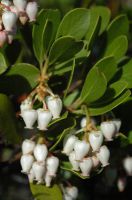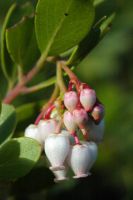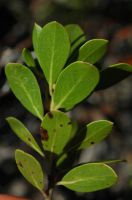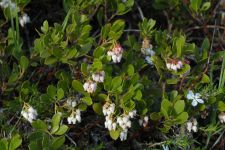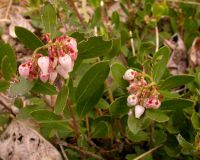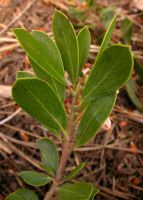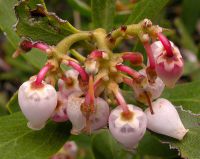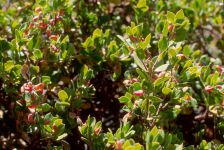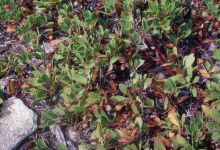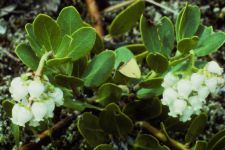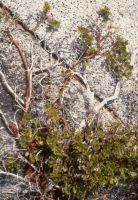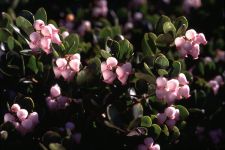Distribution: Occurring on both sides of the Cascades crest in Washington; Washington to California, east to Nevada.
Habitat: Dry forest edge and openings from middle elevations in the mountains to the subalpine.
Flowers: May-July
Origin: Native
Growth Duration: Perennial
Conservation Status: Not of concern
Pollination: Bumblebees, bees, flies, butterflies, wasps, hummingbirds
Shrubs with spreading to decumbent stems often forming large mats or mounds, the branch tips to 2 dm. tall; bark brownish-red, stems puberulent, sometimes glandular.
Leaves oblong to spatulate, the tips acute or abruptly pointed; blades 1.5-3 cm. long, glabrous to puberulent on the margins and mid-rib, the base acute or narrowed abruptly to petioles 2-5 mm. long.
: Inflorescence a terminal, few-flowered raceme, each flower subtended by a bract about equal to the pedicel; flowers pink, about 5 mm. long; corolla urn-shaped, with 5 short lobes; stamens 10, the anthers opening by false terminal pores, each with 2 curved, reflexed, horn-like appendages; ovary superior, pubescent.
Fruit a reddish-brown, globose berry, 7-10 mm. in diameter.
The fruit is the best feature for distinguishing A. nevadensis from A. uva-ursi. The fruit of A. nevedensis is reddish with splotches of brown or black; that of A. uva-ursi is bright red. Without fruit, look at the leaf color. The leaves of A. nevadensis are bright green on both surfaces; those of A. uva-ursi are dark green on the upper surface and light green on the lower.
Publication: Syn. Fl. N. Amer. 2: 27. 1878.
-
ssp. nevadensis – pinemat manzanita
 Occurring on both sides of the Cascades crest in Washington; Washington to California, east to Nevada.
Occurring on both sides of the Cascades crest in Washington; Washington to California, east to Nevada.
PNW Herbaria: Specimen records of Arctostaphylos nevadensis in the Consortium of Pacific Northwest Herbaria database
WA Flora Checklist: Arctostaphylos nevadensis checklist entry
OregonFlora: Arctostaphylos nevadensis information
E-Flora BC: Arctostaphylos nevadensis atlas page
CalPhotos: Arctostaphylos nevadensis photos

